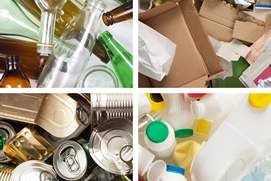Spain’s Cartif research center has designed an integrated treatment plant for all types of waste that will materially cut costs.
The research center from Spanish foundation Fundación Cartif, located in Valladolid’s Boecillo Technology Park (Parque Tecnológico de Boecillo, in northwestern Spain), has developed a mixed-used plant with two treatment lines: one for organic waste (from livestock, the food industry or biomass) and the other for industrial waste such as plastics. Both treatment areas work in parallel in order to optimize energy usage and thereby cut costs.
The first of these plants is expected to be built in the province of Tarragona (northeast Spain) and will have capacity to treat one ton of waste per hour. The facility utilizes anaerobic digestion, a process which uses microorganisms to decompose biodegradable material and in turn produces biogas that can be utilized as an energy source.
It also produces digestate, a byproduct containing minerals that can be used to make slow release fertilizer for farming.
The solid waste generated, which is the result of the biogas reaction produced in the plant, is converted into fertilizer through a crystallization process. This fertilizer is very valuable given its slow release into the ground and to crops, which cannot be equaled by other products in the market. What’s more, this integrated treatment process produces zero emissions.
